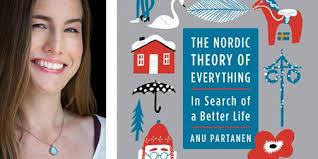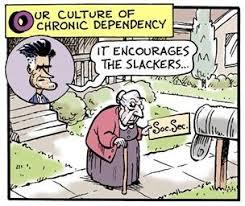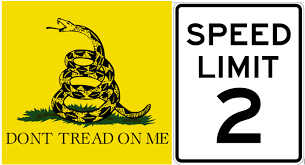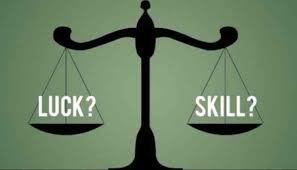America is a great country. Not perfect, but striving to improve — its best characteristic.

Anu Partanen was a young Finnish reporter, who moved here and was surprised by unfavorable comparisons with the Nordic countries — Norway, Sweden, Denmark, Finland, Iceland. Her book, The Nordic Theory of Everything, published in 2016 — pre-Trump — explains ways those nations promote human flourishing, which we can learn from.
American lefties see them as model socialist utopias; those on the right as cautionary tales of nannying welfare socialism. Both are wrong, Partanen shows. They’re not “socialist” at all, actually more free-market capitalist than America. That generates wealth, which they use not for “welfare states” so much as well-being states.
It’s what Partanen calls the “Nordic theory of love.” Creating social structures that free people from stresses and constraints, so they can live the best lives possible.

Partanen cites American principles of freedom, individualism, and opportunity, but came to see them as more theoretical than real, with the exigencies of American life actually forcing people into greater dependency, constraining their choices and freedom of action. Reading this, I wondered whether anti-mask fervor with all its misplaced “freedom” talk is a kind of transference, a cri de coeur over complex feelings of lost true personal freedom in today’s U.S. society. Going maskless is a simplistic counter.
Nordic family and parental leave, pensions, and other financial support policies tend to be far more generous than America’s. A main concern is child development, making an investment in the next generation. It’s recouped many times over when they grow into well-adjusted, productive, self-sufficient individuals. Family-friendly policies also make having children more attractive — combating low birth rates and boosting economies to the extent those children do become productive adults.
That’s all fine, but I felt Partanen was comparing Nordic societies mainly to America’s middle class with too little attention to less-than-affluent Americans, who seemed largely invisible to her. Yet that’s where our failure to invest in all youngsters really bites, getting us legions of poorly educated, poorly adjusted people, with problems of unemployability, crime, homelessness, addiction, etc. — ultimately costing society far more than it would have taken to make them contributing members in the first place.

Schooling is critical. Partanen writes about relatively well-off American parents struggling to advance their kids’ educational prospects, whereas Nordic parents don’t have to, feeling sure of good schooling. Again she doesn’t really discuss economically disadvantaged American kids, who are basically written off altogether. A key reason is U.S. schools funded mainly through local property taxes, inevitably magnifying the disadvantages of the poor. We give lip service to equal quality education for all children but accept falling woefully short. The Nordics really do it.

Turning to health care, our problems are familiar. It started because employee health insurance payments are tax-deductible by businesses and are tax-free income to workers. Making such insurance, tied to employment, ubiquitous. This structure adds huge administrative complexity and costs. And insurers’ economic incentive is not to serve customers but to deny coverage. While hospitals can get away with billing outrageous amounts, often not covered by insurance. Result: costs way higher than in other advanced nations, financially ruinous for many people, without buying us better health.
In Nordic nations health care is pretty much simply taken care of by government, so there’s no financial worry for citizens, nor wrestling with bureaucracies. Partanen respects Americans’ concern about freedom to choose one’s own doctor, etc., but concludes that real freedom is assurance of good care without hassles or money stress. This does entail higher taxes, but the bottom line is lower costs overall.

Tax comparisons are complicated (especially given America’s convoluted system) but broadly speaking most people actually pay similarly in both places. However, Americans must pay heavily for things, like health care, child care, elder care, and college tuition, that Nordics get from government for their taxes. Those countries seem to operate a lot leaner, so all those goodies don’t break the bank. And a big difference is the richest Americans paying lower effective rates than average people. Partanen wrote of that growing gap before Trump’s tax legislation made it even wider. Of course under-taxing the richest makes taxes higher for the rest. And Partanen writes that the Nordics prove how taxing the rich at fair (though not exorbitant or punitive) rates does not impair entrepreneurialism or economic prosperity.
Indeed, freeing businesses of obligations for employee health care and pensions enables them to be more dynamic and competitive. In global “ease of doing business” rankings, Nordics score higher than America. And they’ve cultivated the most valuable economic resource: human capital.
Not only have most Americans become dependent on employers for health care, Partanen observed another kind of dependency here — children all but smothered by helicopter parenting, while the elderly rely on their children for care. It all costs time, effort, and money. Making the financial aspects of marriage more salient while transforming it “into an unappealing morass of squandered careers, insane schedules, and lost personal liberty.” Becoming impossible for the less affluent, for whom marriage is falling by the wayside. That in turn stunts their children’s opportunities. Partanen concludes that American society just isn’t structured to support families. Unlike the Nordics and, indeed, just about every other modern wealthy country.*

It all comes down again to the “Nordic Theory of Love.” Making individuals independent and equal. This applies not only to married couples, but between parents and children, and vice versa. Hence the goal is really the opposite of “socialist dependency” — to remove all forms of dependency, within both the family and the larger society. To allow “all human relationships to be unencumbered by ulterior motives and needs, and thus to be entirely free, completely authentic, and driven purely by love.”
Some might say Nordic citizens are dependent too — upon government. But actually, what they get from government is just taken for granted, in the background of their lives. Very different from the personal dynamics made fraught by intra-family dependencies.
Partanen admires Americans’ positive attitude in spite of all the ways our society makes things hard, while Nordics tend to be morose despite societal structures more conducive to happiness. This seeming paradox reflects humans having well-being set-points independent of life circumstances. Thus the Nordic approach aims to enable people to be as happy as their innate personalities allow. And Americans could be even happier by emulating them.

I consider myself conservative, hating a nanny state telling people what to do; believing government should restrict us only as necessary to prevent harm to others. But rather than regimenting people, the Nordics aim to remove impediments and create the conditions for them to live the best lives possible according to their own proclivities.
America does do this, to a degree, through a complex web of social safety nets. But without any over-arching philosophy akin to a “theory of love.” And public support for such programs is weak, often seen as government giving undeserved handouts to moochers and “line cutters” at the expense of hard-working people. Racial antagonism is a factor, with the benefits being associated with minorities. While in fact such welfare payouts are modest in comparison to the government benefits middle class people receive, often without realizing it, as with tax breaks. The biggest “moochers” are corporations and the wealthy.

On the other hand, the left talks of inequality and “social justice.” I think that’s the wrong framing. “Justice” entails concepts of deservingness, which are arguable here. But unarguably, helping all our citizens to live good decent lives is simply humane. We should do it because they are our fellow human beings, and differing life circumstances are often due just to luck rather than merit or its lack. It would make this a better country for all of us. We are a very rich society that can amply afford it.
* Ironically, it’s “family values” conservatives most opposing policies to do that.
